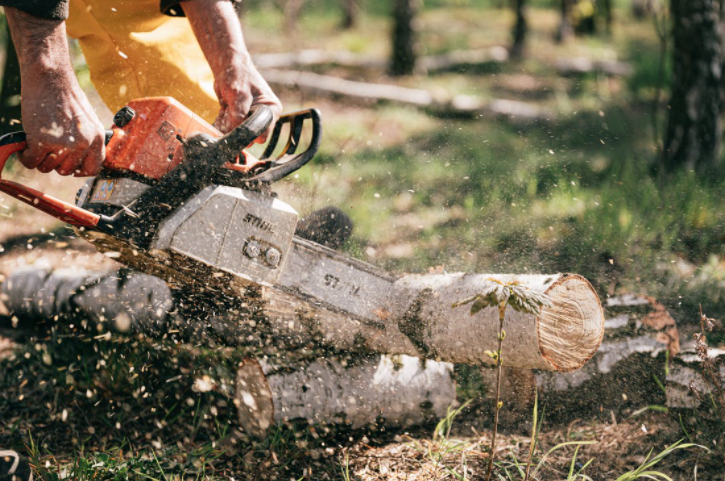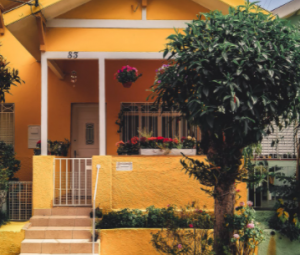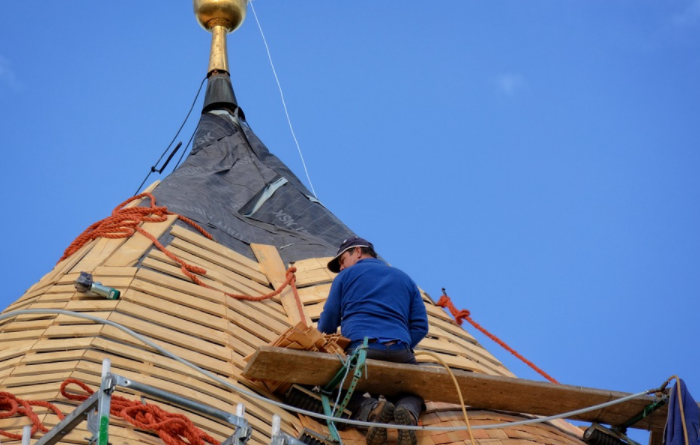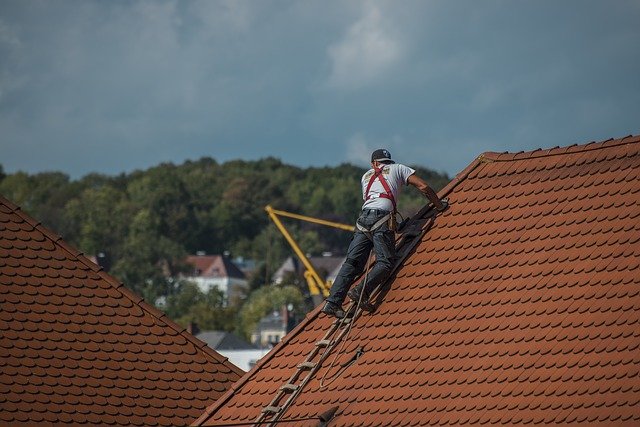
Understanding Property Taxes in Costa Rica: What Buyers Need to Know Understanding Property Taxes in Costa Rica: What Buyers Need to Know
The dream of living in a tropical paradise like Costa Rica is one that many people share. The country offers a laid-back lifestyle, stunning natural beauty, and a very warm, welcoming culture that makes it a super attractive destination for expats and retirees. However, before making the move to Costa Rica, it’s important to understand the country’s property taxes and how they may impact your budget.
Costa Rica, where property taxes are low, often causes many buyers to fail to own a home. This is because they simply overlook property taxes when budgeting for homeownership. To prevent this from happening to you, let’s take a closer look at property taxes in Costa Rica and what you need to know as a buyer.
Annual Property Tax Rate
 The first thing to keep in mind before moving into Costa Rica is the annual property tax rate. The annual property tax rate in Costa Rica often varies between 0.25% to 0.55% of the registered value of the property. This means that if you have a property valued at $200,000, expect you’re going to pay between $500 and $1,100 annually in property taxes. Also, note that the registered value of the property may differ from its market value. The registered value is determined by the local municipality and is used as the basis for calculating your annual property taxes.
The first thing to keep in mind before moving into Costa Rica is the annual property tax rate. The annual property tax rate in Costa Rica often varies between 0.25% to 0.55% of the registered value of the property. This means that if you have a property valued at $200,000, expect you’re going to pay between $500 and $1,100 annually in property taxes. Also, note that the registered value of the property may differ from its market value. The registered value is determined by the local municipality and is used as the basis for calculating your annual property taxes.
Luxury Home Tax
For buyers eyeing luxurious properties in Costa Rica, the Luxury Home Tax is a factor that shouldn’t be overlooked. This tax applies to residential properties with an assessed value above a certain threshold set by the government. The purpose of this tax is to target high-end homes and ensure they contribute their fair share towards public services and infrastructure. The Luxury Home Tax rate can vary depending on the property’s value, usually ranging from 0.25% to 0.55%. Buyers must never forget to calculate this additional cost when budgeting for their dream home in Costa Rica. While it may add to the overall expenses, it’s crucial to comply with local tax regulations.
Tax Valuation Process
The local municipality assesses the property’s worth to establish the annual property tax rate. The assessment considers market trends, land use regulations, and recent sales in the area. It’s essential to keep track of any updates or changes in these assessments to ensure accurate taxation. Property owners may also request a reassessment if they believe their property is overvalued. Being aware of how properties are valued can help potential buyers like you make smart decisions when investing in a beautiful property in Costa Rica. It’s important to consult with experts or real estate professionals to navigate through this process smoothly and avoid any surprises down the road.
Municipal Services Fee
 Living in Costa Rica comes with the benefit of access to various municipal services provided by local governments. As a property owner, you may be required to pay a municipal services fee to cover the cost of these essential services, such as garbage collection, street maintenance, and public lighting. The amount of this fee can hugely vary, factoring in the location and size of your property. It’s important to understand what services are included in this fee and how it contributes to maintaining the infrastructure and cleanliness of your community.
Living in Costa Rica comes with the benefit of access to various municipal services provided by local governments. As a property owner, you may be required to pay a municipal services fee to cover the cost of these essential services, such as garbage collection, street maintenance, and public lighting. The amount of this fee can hugely vary, factoring in the location and size of your property. It’s important to understand what services are included in this fee and how it contributes to maintaining the infrastructure and cleanliness of your community.
By contributing towards this fee, you are not only fulfilling your obligation as a responsible property owner but also ensuring that your neighborhood remains well-maintained and functional. This fee plays an integral role in supporting the overall quality of life for residents in Costa Rica. So be sure to inquire about its specific details when purchasing a property in Costa Rica. Understanding this aspect of property ownership will help you budget effectively and appreciate the value that these services bring to your daily life. By being aware of these key aspects of Costa Rican property taxes, buyers can make informed decisions when purchasing real estate. It’s crucial to factor in these costs when budgeting for your investment and ensure compliance with local regulations. With proper knowledge and guidance from professionals, navigating through the complexities of property taxes can be manageable.


 When adding value to your home, one of the most significant benefits of basement construction is its increased living space. Think about all those dreams you’ve had of having an extra bedroom, a home office, or even a dedicated entertainment area – well, with a basement; those dreams can become a reality. Having an additional floor below ground level opens up a world of possibilities. You can transform your basement into any living space that suits your needs and preferences. Whether you want a cozy family room for movie nights or need extra bedrooms for guests or growing children, the options are endless.
When adding value to your home, one of the most significant benefits of basement construction is its increased living space. Think about all those dreams you’ve had of having an extra bedroom, a home office, or even a dedicated entertainment area – well, with a basement; those dreams can become a reality. Having an additional floor below ground level opens up a world of possibilities. You can transform your basement into any living space that suits your needs and preferences. Whether you want a cozy family room for movie nights or need extra bedrooms for guests or growing children, the options are endless.
 A major benefit of adding a basement to your
A major benefit of adding a basement to your 
 Discolored water can be a sign of bacteria growth. This is usually the result of a
Discolored water can be a sign of bacteria growth. This is usually the result of a  This one might be the nastiest of them all. Sewage overflows, agricultural runoff, and stormwater runoff can all introduce fecal matter into your water supply. This can contain harmful bacteria and viruses that can cause serious illness.
This one might be the nastiest of them all. Sewage overflows, agricultural runoff, and stormwater runoff can all introduce fecal matter into your water supply. This can contain harmful bacteria and viruses that can cause serious illness.
 If you want to drop your senior citizen at an assisted
If you want to drop your senior citizen at an assisted  The assisted living facilities come with different amenities, and they vary depending on where you live. You might find that most of them have swimming pools, movie theaters, libraries, common areas for socialization, beauty salons, and more.
The assisted living facilities come with different amenities, and they vary depending on where you live. You might find that most of them have swimming pools, movie theaters, libraries, common areas for socialization, beauty salons, and more.

 People like it when there is new stuff since it makes them believe that the whole place is improving, and it lifts the spirit of the entire office. Purchasing new furniture makes the employees feel like they are part of an important organization.
People like it when there is new stuff since it makes them believe that the whole place is improving, and it lifts the spirit of the entire office. Purchasing new furniture makes the employees feel like they are part of an important organization.

 A qualified tree care company must also have entire liability and workers’ compensation insurance. The tree care company must have liability insurance with at least 1,000,000 per claim, 2,000,000 general liability, and 500,000 workers’ compensation. Homeowners should not hire a
A qualified tree care company must also have entire liability and workers’ compensation insurance. The tree care company must have liability insurance with at least 1,000,000 per claim, 2,000,000 general liability, and 500,000 workers’ compensation. Homeowners should not hire a 




 Rainfall shower heads come in various types, out of all these options rectangle and round shapes are the most popular one. But if you want to get the best experience, then you shall pay more attention to the size instead of shape. A larger shower head will give you freedom to have a perfect bath without dancing here and there to get the water. So make sure you keep this thing in your mind.
Rainfall shower heads come in various types, out of all these options rectangle and round shapes are the most popular one. But if you want to get the best experience, then you shall pay more attention to the size instead of shape. A larger shower head will give you freedom to have a perfect bath without dancing here and there to get the water. So make sure you keep this thing in your mind. Choosing a shower head from a reputable brand is always a good idea. A reputable company will make sure all of its products are high quality and gives longer life to you. They make sure you get right assistance for the installation, and if you get any problem in the shower heads, then they assist you in that as well. That is something you do not get if you choose a non-trustworthy company for same.
Choosing a shower head from a reputable brand is always a good idea. A reputable company will make sure all of its products are high quality and gives longer life to you. They make sure you get right assistance for the installation, and if you get any problem in the shower heads, then they assist you in that as well. That is something you do not get if you choose a non-trustworthy company for same.